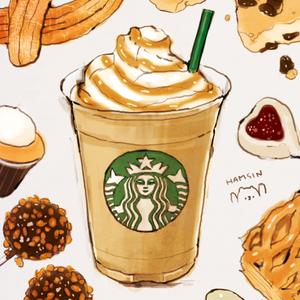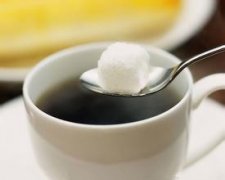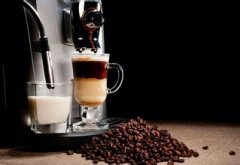An exclusive interview with Starbucks Chairman Howard Schultz

About Starbucks Chairman Howard Schultz
Howard Schultz joined Starbucks Coffee Company as Director of Operations and Marketing in 1982, when the company had only four stores, and purchased Starbucks Coffee Company in August 1987.
In June 2000, Mr. Schultz, who had already served as chairman of the board, assumed the position of chief global strategy officer of the company, applying his expertise in brand building to Starbucks 'global business development and brand internationalization. Mr. Schultz has always been recognized as the architect and spokesman of the company's brand image, and he constantly provides strategic advice on the company's development and develops new business partners.
Under Mr. Schultz's leadership, the company has passed several business milestones. Starbucks was the first private company in North America to offer two special benefits to its employees; part-time employees have also received full health benefits since 1987; and qualified full-time and part-time employees have been able to hold shares in the company in the form of company stock options since 1991, known as "coffee bean stock."
In June 1992, Starbucks became the first specialty coffee company to go public. Starbucks has grown into the world's leading coffee retail and roasting brand. In addition to opening retail stores in North America, Europe, Asia Pacific and the Middle East, Starbucks sells coffee and tea products in its coffee and outlet stores and develops new coffee shops in ethnically diverse neighborhoods through partnerships with former NBA star Magic Johnson's Johnson Development Company.

Mr. Schultz has received a series of prestigious awards in recognition of his achievements and commitment to society and employees. In 1996, CARE awarded Schultz the International Humanitarian Award for promoting a new partnership between Starbucks and CARE to help people in coffee-producing countries. In August 1998, Mr. Schultz received an award from the Aish HaTorah Jerusalem Foundation for his outstanding contribution to improving the quality of human life. The first issue of Restaurants and Institutions magazine in 2000 named Mr. Schultz Executive of the Year. In September 2000, Colombia University's Business School awarded Mr. Schultz the Botwinick Award for good business ethics. In January 2002, Mr. Schultz was named one of BusinessWeek's Top 25 Managers of the Year. In April 2004, Mr. Schultz was named one of Time magazine's 100 most influential people in the world.
Interview with Starbucks Chairman Howard Schultz
Have you really been to Starbucks? You are Starbucks 'most loyal customer!" Howard Schultz looked surprised and clicked his tongue. On the afternoon of December 11, Howard Schultz, global chairman of Starbucks, who has visited China frequently in recent years,
Speaking at Fudan University. Hundreds of students packed Wu Wenzheng's lecture hall in Guanghua Building.
A student stands up to surprise the head of the coffee empire. The boy said that every time he went to a country or city, he would visit the local Starbucks and stamp it with his seal. Schultz doesn't seem convinced: "Really?" The student immediately pulled out a booklet full of Starbucks store stamps.
Schultz has heard stories of people kneeling in front of Starbucks thanking the city for Starbucks, and has witnessed a long queue in front of a Japanese store to buy coffee in the early morning, but he has never heard of people collecting Starbucks store seals.
Schultz walked down from the podium in surprise, took the booklet and asked,"Do you want me to sign it?"
Schultz, who passed Starbucks in 1982 and was attracted by the fragrance floating out of the store, certainly did not expect to meet such a Starbucks super fan in China 14 years later.
Since Schultz convened a group of investors to buy Starbucks in 1987, from Fifth Avenue in new york to Paris Opera House, from Beijing Forbidden City to Sydney's romantic beach, the siren with two tails in Starbucks trademark has traveled to almost every corner of the world's major cities, and has become an important picture of the globalization of American culture with McDonald's fast food and levis jeans. Starbucks now has more than 9500 stores in North America, Latin America, the Middle East and the Pacific coast. After opening its first Chinese branch in Beijing in 1999, Starbucks now has more than 140 stores in the mainland of China. China is becoming Schultz's focus, and he has been to China several times in September alone. In December, at the invitation of Shantou University and Fudan University, he came to teach Chinese students the successful experience of Starbucks. From Shantou to Shanghai, the reporter of "The Bund Pictorial" who followed all the way interviewed Schultz twice between speeches.
Super fans program
Before Schultz's Starbucks empire, the average American's coffee habit was to buy roasted coffee and bring it home to grind it, or simply brew instant coffee. Just as he did when he passed Starbucks in 1982, when it was just a store selling roasted coffee beans and coffee machines, Schultz was attracted by the aroma wafting out of the store. Schultz, who was completely fascinated by the fragrance, excitedly called his girlfriend: "I am in the kingdom of God!"
It was Schultz's first real experience of coffee. Schultz joined Starbucks in 1982. In 1984, Starbucks, the first Starbucks he advocated to create the concept of a "French cafe," opened. The cafe seeks to strike a balance between fast-food, low-quality coffee and elegant, fine-quality coffee, thereby creating a new experiential consumption of high-quality coffee at a relatively low price. His French Cafe was a success, but to his disappointment, his idea didn't get the approval of Starbucks 'three founders.
Schultz left Starbucks in 1985 to open his own coffee shop. In 1987, the original Starbucks ran into difficulties, which gave Schultz an opportunity. In August 1987, he bought five Starbucks stores. That same year Starbucks opened its first espresso shop away from Seattle in Chicago. Starbucks then expanded its footprint along the Pacific from Chicago to Vancouver through Seattle, and the number of stores grew from 11 to 53 in 1992. Starbucks went public in the United States in 1992, and since then Starbucks has been on the fast track.
"For a party with close friends or informal business meetings that require a relaxed atmosphere, I go to Starbucks, of course." Schultz said,"Here, I can see all kinds of people, corporate executives, athletes, housewives... are here." Schultz's own life is Starbucks 'best advertisement, even if he isn't at Starbucks or on his way to Starbucks. Every morning, the first thing he does is drink coffee. Machi Hado espresso or Starbucks 'own Indonesian coffee,"depending on the mood." Besides, he rarely served ordinary brewed coffee in public, which was an intolerable thing for him. Coming to China, known as "Starbucks 'super fans"-Schultz's main task is still to promote the Starbucks concept. During a few days of intense travel, Schultz gave speeches at Shantou University and Fudan University successively. In order to cultivate more Starbucks super fans in China, Shantou University's speech was also broadcast live to students at the University of Hong Kong and China Youth Political College via video.
At the Starbucks store in Meiluo City, Xujiahui, Shanghai, employees take turns presenting each customer with a 30-milliliter sample to familiarize more people with Starbucks. Such tastings are taking place in tens of thousands of Starbucks stores and have become an important part of Starbucks 'global expansion plans. The Seattle-based company hopes to one day have thousands of stores in China and eventually make China its largest market outside the United States.
$3 Chocolate
Starbucks sells 40 million cups of coffee a week worldwide, making Schultz one of Forbes '400 richest people in 2006, worth more than $1 billion. Today, the rich man who came to China was accompanied by a bodyguard and a chocolate bar.
He bought the $3 chocolate five months ago at the entrance of a movie theater while taking his daughter to the movies. The businessman who had 1.2 billion people queuing around the world for a $4 cup of coffee was fooled by the fact that a chocolate bar was packaged in a way that "form was bigger than content":"I wanted to buy popcorn, but she insisted on buying this new chocolate bar." It was beautifully packaged and sold for $3, so I gave my daughter what she wanted." During his Fudan presentation, Schultz took a small chocolate bar from the box and compared it to a much larger box."A business that makes such a product is not worth serving." The audience burst into laughter. For five months, Schultz has taken this lesson to heart. This $3 Chocolate makes Shure
He realized that advertising can sometimes backfire. Although Starbucks has a huge influence in the world, according to the latest survey results released by InterBrand, Starbucks has become the third most influential brand in the world after Apple and Google. But Schultz says it's not the power of advertising that makes the Starbucks brand so powerful.
According to Schultz: "We spend only $10 million a year on advertising, which may not be a fraction of the money compared to companies that are good at marketing." We don't have complex advertising and marketing. The secret is sustainability, which we always emphasize. It is our unique values and culture that sets us apart from other companies. When employees combine these values with the overall philosophy of the company, they can generate a huge impetus. This is the secret of long-term business operation."
"Bean stocks"
Howard Schultz was born in Brooklyn, New York, in 1952, to a poor family with bullet holes in the walls. "I remember our house as a tiny apartment, with a low, dark hallway, unsoundproofed walls, and a bad kitchen smell everywhere. There are all kinds of people gathered in this kind of public housing. They are basically the poor at the bottom of society." Schultz is not shy about those days when his family was poor. "My father had a terrible job. He's a truck driver. Delivery of clothes and diapers." At that time, father's income was the pillar of the family's life,"we three brothers and sisters, every day eager for father to come back from work to bring us snacks and toys, that is the happiest time."
But all this was shattered when Schultz was seven years old. Schultz came home from school that day. He opened the door down the hall and saw his father lying on the sofa moaning. "While at work, my father suffered a serious accident, not only injured his ankle bone, but also his hip. But he didn't have hospitalization, medical insurance, work-related injury compensation... because his injured father lost his job."
That day changed his life: "I saw the plight of the American working class, I saw the destruction of dreams, when I was seven years old." Every day after that seemed to be spent borrowing and hiding from my mother. Poverty has always accompanied Schultz, and he even relied on selling blood to finish college.
"I'll never forget those days. The social security system in the United States at that time was far less sound than it is today. That painful experience made me realize that a centripetal group should have sufficient care for each individual in order to increase the individual's sense of identity with the group. So I would never let that happen to my employees."
Schultz built on that memory to structure the benefits for Starbucks employees-he called them partners. Starbucks employees are paid well compared to their peers in the retail industry, as are benefits. Schultz pays full health benefits for all part-time employees and gives stock options--what he calls "bean stock"--to anyone who works 20 hours a week or more for the company for more than six months. These are extremely rare in the industry.
Important Notice :
前街咖啡 FrontStreet Coffee has moved to new addredd:
FrontStreet Coffee Address: 315,Donghua East Road,GuangZhou
Tel:020 38364473
- Prev

An exclusive interview with Wang Jinlong, Chairman of Starbucks China
Mr. Wang Jinlong, president of Starbucks China, a well-known global coffee brand, came to Shenzhen to attend the third Shenzhen Summit of China Entrepreneur Forum. After the meeting, the reporter conducted an exclusive interview with Wang Jinlong. Wang Jinlong is gentle and gentle as the global vice president of Starbucks, which has been named the brightest star brand by BusinessWeek and a Fortune 500 company.
- Next

An exclusive interview with Mr. you Changsheng, Chairman of Shangdao Group
[name] you Changsheng [gender] male [position] Chairman of Shanghai Shangdao Coffee and Food Co., Ltd. [profile] there were few high-grade places for businessmen to drink tea and talk about things in Haikou at that time, so you Changsheng came up with the idea of investing in coffee shops. When I first opened this store, I was not very sure. It is mainly worried that Hainan people are used to drinking local coffee.
Related
- What documents do you need to go through to open a coffee shop? coffee shop coffee shop certificate processing process
- How to purchase Coffee beans in small Cafe how to choose a suitable supplier for domestic Coffee supply Company
- How to drink Starbucks Fragrance White Coffee? how to make Australian White Coffee? what Italian coffee beans are recommended?
- The Story of Flora Coffee: the name of Flora Coffee Bean and the implication of the Flowers on Florna Coffee
- How much does a cup of coffee cost? How much is the profit of a cup of coffee? What is the profit of the coffee shop in a year?
- Yunnan small Coffee, known as "fragrant Coffee", introduces the characteristics of Alpine Arabica Coffee producing areas in Yunnan, China
- 2023 latest Starbucks full menu price list how much is a cup of Starbucks coffee what is better to drink the most popular hot and cold drinks recommended
- Starbucks different kinds of Coffee Price list Starbucks menu 2023 Top Ten Best drinks in Starbucks
- Starbucks Spring praise Comprehensive matching Coffee Bean theme Story Packaging implication and taste description
- The cost of a cup of coffee latte American coffee cost price and selling price

